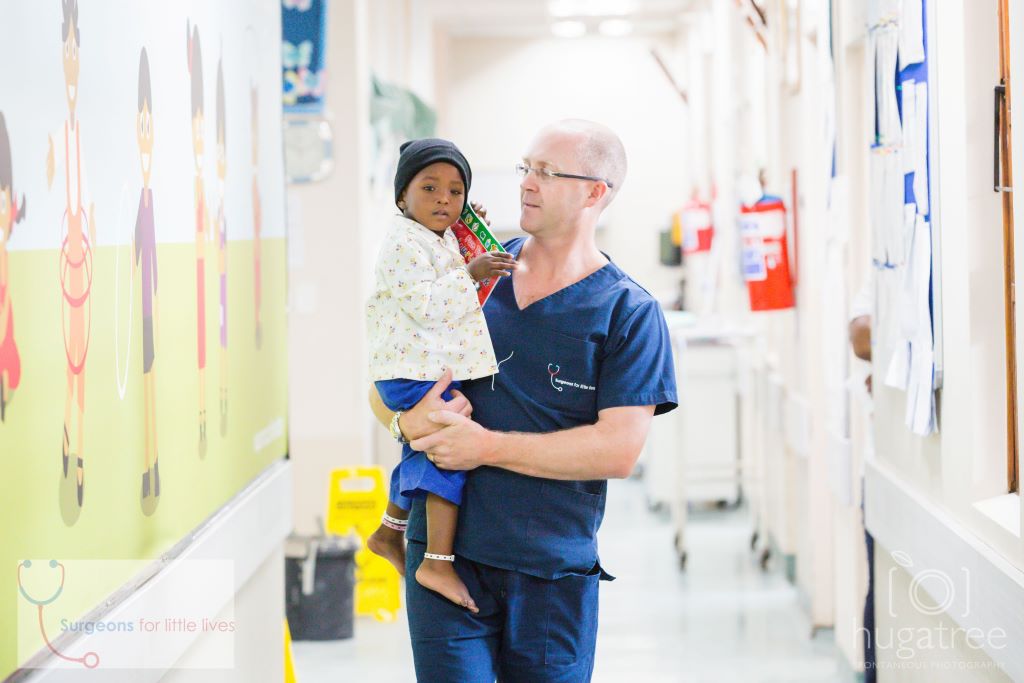A Decade of Hope and Healing: Surgeons for Little Lives Marks 10 Years of Transforming Paediatric Care
Every day for ten years, Surgeons for Little Lives has stood beside children and families, providing life-saving care and support.

For the past ten years, Surgeons for Little Lives has stood as a lifeline for thousands of children at Chris Hani Baragwanath Academic Hospital (CHBAH) in Soweto – the largest hospital in the southern hemisphere. In a healthcare system often stretched to its limits, this dedicated non-profit organisation has filled critical gaps with compassion, resilience and an unwavering belief that every child deserves the best possible care.
Since its founding in 2015, Surgeons for Little Lives has walked hand-in-hand with doctors, nurses, patients and families, not only providing vital resources but transforming the hospital experience for young patients. From upgrading surgical wards and equipment, to nurturing the next generation of paediatric specialists and creating welcoming, family-friendly spaces that offer comfort in the darkest moments – its work has made healing more than just a medical process. It’s become a human one.
“Our first ten years have shown what’s possible when people come together with one shared purpose: to save and uplift the lives of children,” says Professor Jerome Loveland, Founder and Chair of Surgeons for Little Lives. “We are deeply proud of what has been accomplished – but we know the need is growing. That’s why we will continue, every single day, to build capacity, inspire future leaders, and give every child a fighting chance at a brighter future.”
Why this work matters
South Africa has one of the highest burdens of paediatric surgical disease in the region. Children make up nearly 40% of the population, yet there are too few specialists and limited facilities to meet the demand. Severe burns, congenital conditions, childhood cancers and trauma are common, and without surgery many children would not survive.
At CHBAH alone, the paediatric surgery department sees more than 11,000 patients each year and performs over 2,300 operations. Surgeons for Little Lives works closely with the Department of Health to turn overstretched wards into spaces where children can recover with dignity.
3,650 days of achievement
Hospitals can be intimidating places for children. Surgeons for Little Lives has transformed the hospital environment with projects like an outdoor play area for recovering patients, family sleep-over facilities, and a fully revamped Ward 32 with a library, playroom, and upgraded bathrooms. Most recently, the organisation launched the Wells Paediatric Burns Unit, which doubled ICU beds, improved infection control, and added rehab spaces. For families, these changes mean children receive life-saving surgery and care in an environment designed with their needs in mind.
Beyond facilities, Surgeons for Little Lives has created programmes that focus on children’s emotional and physical wellbeing. Healing Through Art & Music gives young patients a way to process trauma through creativity and the SCAN programme, launched in 2023, helps to detect and prevent child abuse. In partnership with the South African Breastmilk Reserve, Surgeons for Little Lives also set up lactation support for new mothers. Other practical initiatives – from discharge packs to Mandela Day donations – have provided small comforts that make a big difference in long hospital stays.
Training for the future
Paediatric surgeons are scarce, and training takes years. Over the past decade, Surgeons for Little Lives has supported the journey of 17 qualified surgeons and backed another 15 registrars currently in training, supplying equipment like surgical loupes and funding access to academic opportunities. In 2024, the first Rolls Royce Oncology Fellow, Dr Andinet Beza from Ethiopia, trained at CHBAH before returning home with new skills. “This initiative, along with other training efforts, is helping to build the next generation of paediatric surgeons equipped to deliver world-class care. Training these specialists is a responsibility we take seriously and a privilege we don’t take for granted,” says Prof Loveland.
Community and partnerships
Community engagement has been central to the success of Surgeons for Little Lives. Fundraising events such as Bara Ride and Joberg2C, together with job shadowing opportunities for young people, have brought South Africans closer to the realities of paediatric care. Volunteers and donors provide not just resources but also comfort to families who spend weeks or months at a child’s bedside.
“This impact has only been possible thanks to the support of partners,” says Prof Loveland. “Contributions from corporates, foundations, and philanthropists have funded essential equipment, upgraded facilities, supported family-centred programmes, and helped fill critical gaps in care, ensuring that more children receive the treatment they need.”
10 years in numbers
- 11,000+ patients seen in the paediatric surgery department each year
- 2,300+ operations performed annually at CHBAH
- 3,000+ burns patients treated since 2015
- Mortality halved in the burns unit after upgrades
- ICU beds increased from 6 to 11 in 2025
- 17 paediatric surgeons trained; 15 registrars in training
- Hundreds of families supported with sleep-over spaces, counselling, lactation services and more
Join us
Surgeons for Little Lives invites supporters, partners and the wider community to join in building the next chapter. By funding new projects, volunteering time or raising awareness, everyone can help ensure that more children get the surgery and support they deserve.
For its 10th anniversary, the organisation is calling on the public to donate R365 – one rand for every day of the year. In hospital that amount can cover burn dressings for a child, a week of meals for a parent at their child’s bedside or supplies for play therapy to make recovery less frightening, among many other things.
Every rand counts. Every day makes a difference.
For more information or to get involved, visit surgeonsforlittlelives.org.



